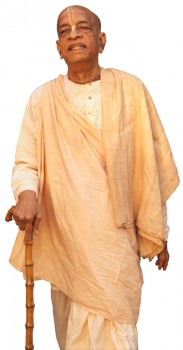The Overlap of Real and Virtual

Although such sites as Facebook and youtube are in essence virtual, still their content oftentimes depict reality, as we know it, within the perverted interface of virtual reality.
As I write, thousands of protestors blanket the Middle East, orchestrating protests in response to one producer’s short film in California deriding Muhammad. Aborning from the film has been torrid violence against the symbol of America, which due to the incendiary film has augmented enmity in the hearts of many Muslims. Indeed due to its posting on YouTube and the universal exposure it engendered, there has been a spread of insurrection like a forest fire, springing up in Arab countries and Muslim communities throughout the earth – Egypt, Yemen, Palestine, and India are some noteworthy participants.
Contemporary communication and media is precarious and daunting when compounded with the fragility of the world’s state of affairs. Due to increasing demands on finite resources, war between competing factions is ever more probable and the match to the oil could be one piquing post online. Even on a smaller scale, war among neighbors can be engendered by aggravating people’s already disturbed minds. For example, two men were recently sentenced in England to four years in prison for creating news about a fake riot that upset many people who thought it was real. As can be observed in society today, regulations regarding public viewership of some media material are established to prevent these types of pugnacious circumstances, but can never be impenetrable at occluding everyone from watching, or publishing it themselves. Furthermore, what is to prevent similar melees from sparking up spontaneously in the future? Or is it the ripened fruit of freedom of speech that we can now enjoy?
Reality As We Know It
Virtual is defined as ‘something simulated or extended by computer software.’ Although such sites as Facebook, and YouTube are in essence virtual, still their content oftentimes depict reality, as we know it, within the perverted interface of virtual reality. One can visit YouTube and see millions of videos depicting real life events that occurred, visit Facebook and see news about the real lives of other individuals, or a plethora of sites depicting reality. On the other end of the spectrum, web surfers can play as an avatar, a virtual character depicting the gamer, and ‘live’ as the character with some of the accoutrements and nuances of real life in the virtual world of “Second Life”. Although one may be able to distinguish the digital interface as unreal as well as the objects presented in it to be either factual representations of reality or mental concoctions, what if that line still becomes opaqued? The only bulwark would be the individual’s sense of discrimination, which is already competing with the technological trend geared towards blurring that boundary – making the unreal more tangible, thereby distorting the minds of many, if not the intelligence as well in anomalous instances.
Technology Happy
There seems to be an intoxicating effect technology has on avid users to the degree that they deem their actions via a digital interface to be inconsequential to life outside the interface. It can be used like a license to engage capriciously in what would only be contemplated subconsciously. For example, there are video games where gamers can kill and kidnap virtual people, and engage in numerous other kinds of delinquent behavior – the tantalizing aspect being that it is so life-like, enabling one with the thrills of mimicking criminal behavior without having to suffer any backlash; the side effect, however, is that by becoming absorbed in the phantasmagoria, one’s behavior can change in often subtle, unconscious ways.
On a large scale, the industrialization over the past two to three centuries has ushered the virtual computer world of today – a systematic and progressive impersonalist approach to the world, in stark contrast to bygone civilizations; it has had copious effects in how people perceive reality, their self identity, and one’s interaction of the subjective self with the subjective reality. In contemporary times, according to a 2006 study by sociologists from Duke University and the University of Arizona, the average American’s support system consists only of immediate family members. Furthermore, Keith Hampton, a sociologist from the University of Pennsylvania, has found that among the inner family circle of the average American, there is still a great deal of communication but far less of it is personal; rather, a great majority of interaction is through the medium of social networking sites or other communication technologies.
Virtual Junkies
Researchers from Nottingham Trent University and Stockholm University recently published a study in Journal of Cyber Behavior, Psychology, and Learning that identified a disorder termed Game Transfer Phenomena after conducting 42 in-depth interviews with avid game users between 15 and 21. Every participant showed signs of involuntary thoughts related to video games, wanting to use something from a game to solve a real life issue. Indeed a few consented to contemplating violent alternatives to problems they remembered while playing, even experiencing involuntary surges of violent thoughts and sensations. Professor Mark Griffiths of Nottingham Trent University gave the practical import to the study, saying this trend “suggests intensive gaming may lead to negative psychological, emotional or behavioral consequences, with enormous implications for software developers, parents, policy makers and mental health professionals.”
Jeremy Bailenson, an assistant professor of communication at Stanford University, has studied the effects of virtual reality on self perception. Lab research revealed that self-perception does in fact change with users identifying themselves to some degree as the video game character, even after exiting the game. In fact, according to the studies conducted at Stanford’s Virtual Human Interaction Lab, just 90 seconds in virtual reality is enough to warrant behavioral changes. Although Bailenson uses some of the most advanced technology to depict real life, other, less advanced forms of virtual reality, still affect people in synonymous ways. “Second Life” and “World of Warcraft” are two virtual reality games with millions of users worldwide. Researchers found, after studying 32 volunteers, that the virtual characteristics of the avatar that was used in the game – short, fat, beautiful, tall, or ugly – affected the self-esteem and self-confidence of the user in daily life. Similar findings can be traced to social media users like Facebook and Twitter, who rely on their facebook page and status instead of an avatar as their sense of identity or false ego.
Not only emotionally, but physical changes can occur with the interface user as well, transgressing the interface’s effect on the user from subtle to gross behavioral changes. A Stanford graduate student, Jesse Fox, has studied how players in virtual reality that have healthier habits such as regular exercise transpire the users to also engage in exercise. Fox’s research revealed that participants, who viewed their player engaged in exercise, were more apt to exercise for an hour more within a 24 hour period. Similarly, those who saw their player lounge did not exhibit the same response.
In the all-too-real world of war, the military has began training soldiers to also engage in a video game style interface that looks as real as these unreal virtual realities. Soldiers manipulate drones that actually kill people, who are far removed from the operator. The soldiers are far removed from battle physically; nonetheless, they suffer the same mental anxieties as those on the front lines, according to Colonel Hernando Ortega, a surgeon for the Air Force Intelligence, Surveillance, and Reconnaissance Agency.
Big Brother
Whether malicious or innocuous, the repercussions of one’s activities on the Internet are far reaching, and more often than not, unforeseen, as awestruck people have witnessed from the malign domino effect of the anti-Islamic video. There is access to limitless information that was never before available to the masses. Great opportunity abounds with knowledge, and indeed even the layperson now has power to shift the global tides. Hence, a great responsibility rests with scores of people all over the world, but with privilege is the possibility of abuse, especially when proper education is absent.
Portended in George Orwell’s 1984, a society that is constantly being monitored has fructified through technology. Harbingers of a police state can be seen in the government. After passing the Nationwide Suspicious Activity Reporting Initiative in 2009, the government is granted access to secretly gather or collect information on anyone if he or she is deemed a threat, even without having reasonable suspicion or probable cause. Interestingly, civilians in West Virginia can also download the I-phone application, Suspicious Activity Reporting, to monitor each other by submitting reports to the FBI of any strange or criminal behavior. Furthermore, online companies like Facebook and Google track the activities of their users, which can be legally shared with other parties. Adding fuel to the fire, President Obama’s new bill, National Defense Authorization Act, allows the government to indefinitely hold prisoners without trial, making the situation more precarious and pernicious for the spotlighted citizens of this country. George Orwell’s Ministry of Truth need not apply.
Turning the Interface Inward
The human body is also an interface one uses to interact with the world. Within the bodily sphere are senses one uses to navigate the world, facilitate the performance of work, and enjoy the fruits of one’s work. Simultaneously, one can perceive that the true self is not the body, but the observer of the body. A symptom of the observer is consciousness. Every living being is conscious to some degree; we can see this practically – the dog, tree, cow, and human being are all conscious.
One must strive to live in accordance with higher, objective laws and principles in order to be satisfied with one’s self. Despite living in a subjective reality based on one’s limitations as an observer, there are still objectively ‘good’ pursuits, which are directed towards spiritual advancement, and are true sources of permanent happiness, not dependent on anything else. To become inured to a subjective reality without remaining tethered to objective principles leads to a life of hysteria fraught with suffering. Unnecessary reliance on material facilities can occlude our pathway towards genuine happiness and fulfillment, atrophying one’s determination and sincerity to pursue higher levels of truth; therefore, one who is wise does not take shelter of such temporal contrivances nor is he inattentive in how he associates with them.
To develop the consciousness is inevitably the goal of every living being. Srila Prabhupada, founder of The International Society for Krishna Consciousness and a very learned personality of Vedic philosophy said, “Technology or science, it is the same thing. Our problem is the advancement of the spirit soul…there is actually no advancement of scientific knowledge.”


